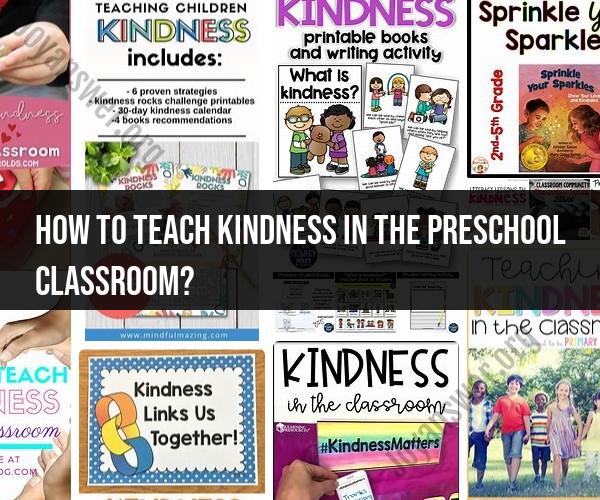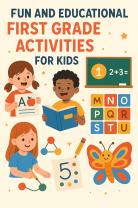How to teach kindness in the preschool classroom?
Teaching kindness in the preschool classroom is a valuable lesson that can have a lasting impact on young children. Here are some strategies and activities to promote kindness and empathy among preschoolers:
1. Lead by Example:
- Model kindness and empathy in your interactions with students, peers, and staff. Children often learn best by observing adults.
2. Storytelling:
- Read books and stories that highlight kindness, compassion, and empathy. Discuss the characters' actions and feelings to reinforce these concepts.
3. Classroom Discussions:
- Engage children in age-appropriate discussions about feelings, emotions, and the importance of treating others with kindness and respect.
4. Role-Playing:
- Use role-playing activities to act out scenarios where children can practice kindness, sharing, and cooperation.
5. Kindness Calendar:
- Create a kindness calendar with daily acts of kindness, such as helping a friend, sharing toys, or saying something nice about someone.
6. Kindness Jar:
- Introduce a kindness jar where children can drop notes or tokens when they witness acts of kindness by themselves or their peers. Celebrate these moments together.
7. Friendship Activities:
- Plan activities that promote friendship, like buddy systems, where children pair up to support and look out for each other.
8. Thank You Cards:
- Encourage children to make and exchange thank you cards for acts of kindness, both big and small.
9. Random Acts of Kindness:
- Encourage random acts of kindness, such as picking up litter, helping someone who has fallen, or comforting a friend who is upset.
10. Empathy Games:- Play games that teach empathy, such as "Emotion Charades," where children act out emotions and others guess how they're feeling.
11. Story Creation:- Have children create their own stories or drawings that depict acts of kindness and sharing.
12. Kindness Challenge:- Set a monthly kindness challenge, such as helping with classroom chores, sharing a favorite toy, or complimenting a classmate.
13. Conflict Resolution Skills:- Teach preschoolers basic conflict resolution skills, including using "I" statements to express feelings and finding solutions together.
14. Inclusive Activities:- Plan inclusive activities that involve all children, ensuring no one feels left out or excluded.
15. Kindness Awards:- Recognize and celebrate acts of kindness with certificates or small awards to reinforce positive behavior.
16. Kindness Songs and Rhymes:- Sing songs and rhymes that emphasize kindness, friendship, and cooperation during circle time.
17. Community Involvement:- Engage in community service projects or involve parents and families in acts of kindness outside the classroom.
18. Gratitude Exercises:- Teach children to express gratitude by sharing something they're thankful for during group discussions.
19. Positive Reinforcement:- Offer praise and positive reinforcement when children display acts of kindness and empathy.
20. Time for Reflection:- Create quiet moments for reflection, allowing children to think about their actions and feelings toward others.
Remember that teaching kindness is an ongoing process that requires patience and repetition. Encourage children to practice kindness not only within the classroom but also in their everyday interactions with family, friends, and the community. By fostering a culture of kindness, you help preschoolers develop valuable social and emotional skills that will serve them well throughout their lives.













